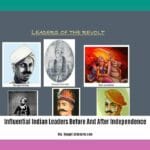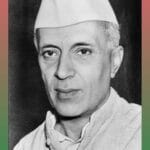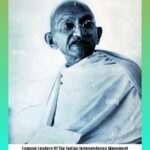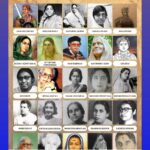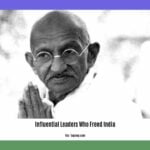Embark on an enthralling journey through history as we unveil the iconic leaders of the Indian freedom struggle in “Unveiling the Iconic Leaders of Indian Freedom Struggle: A Journey Through History.” These extraordinary individuals, armed with unwavering determination and a profound vision for a self-governing India, orchestrated a relentless campaign that led to the nation’s independence.
Key Takeaways:
![]()
- Veer Savarkar (1883-1966): Advocated for cultural unity and Hindu nationalism.
- Dadabhai Naoroji (1825-1917): Provided an economic critique of British colonialism.
- Mahatma Gandhi (1869-1948): Championed nonviolent resistance and led India’s freedom movement.
- Jawaharlal Nehru (1889-1964): First Prime Minister of India and a visionary nationalist.
Iconic Leaders of Indian Freedom Struggle
The Indian freedom struggle was a transformative chapter in history, marked by the extraordinary contributions of iconic leaders who dedicated their lives to achieving independence for their nation. Each leader brought unique strengths, strategies, and sacrifices to the movement, leaving an enduring legacy on India’s path to freedom.
Dadabhai Naoroji: Economic Analysis of British Colonialism
Dadabhai Naoroji was a prominent economist and political leader who played a pivotal role in raising awareness about the economic exploitation of India under British rule. He meticulously presented his findings in the “Poverty and Un-British Rule in India,” which provided a compelling critique of British policies and their detrimental impact on the Indian economy.
Mahatma Gandhi: Nonviolent Resistance and Civil Disobedience
Mahatma Gandhi emerged as the symbol of nonviolent resistance and civil disobedience. His Satyagraha movement rallied millions of Indians who peacefully protested against British rule. Gandhi’s teachings of ahimsa (non-violence) and swaraj (self-rule) resonated deeply with the Indian people and became a defining characteristic of the freedom struggle.
Jawaharlal Nehru: Visionary Nationalism and Modern India
Jawaharlal Nehru was the first Prime Minister of independent India and a prominent figure in the nationalist movement. He espoused a vision of a modern, secular, and democratic India. Nehru’s leadership was instrumental in shaping the nation’s post-independence trajectory, fostering economic development and international cooperation.
Sardar Vallabhbhai Patel: Unification of Indian States
Sardar Vallabhbhai Patel played a pivotal role in unifying the newly independent Indian states into a cohesive nation. His diplomatic skills and administrative acumen proved invaluable as he integrated over 500 princely states into the Indian Union, creating a strong and stable foundation for the country.
Read about the influential Indian leaders before and after independence, who shaped the nation’s destiny with their vision and leadership. Discover the greatest pre-independence Indian leaders who fought for freedom and laid the foundation for a modern India. Learn about the most famous post-independence Indian leaders who steered the nation through challenges and progress.
Jawaharlal Nehru: Political Pragmatism and Socialist Ideals
Among the giants of India’s freedom struggle, Jawaharlal Nehru stands out as a visionary leader who shaped the nation’s destiny. His pragmatic approach to politics and unwavering commitment to socialist ideals left an enduring legacy on India’s path to independence and beyond.
Nehru’s Political Pragmatism
Nehru, a product of a privileged background, emerged as a pragmatic leader who believed in the power of democracy and diplomacy. He understood that India’s struggle for independence required both mass mobilization and negotiation with the British authorities. Nehru’s ability to balance these seemingly conflicting approaches was crucial to the success of the Indian National Congress, which he led for many years.
Nehru’s Socialist Vision
While Nehru was a democrat, he was also a staunch advocate of socialism. He believed that economic equality and social justice were indispensable to India’s progress. Nehru’s socialist policies aimed to create a mixed economy that protected the rights of both workers and businesses. He introduced land reforms, promoted industrial development, and established a comprehensive welfare system to uplift the marginalized.
Key Takeaways:
- Jawaharlal Nehru: A pragmatic politician and committed socialist.
- Pragmatic Approach: Balanced mass mobilization with negotiation.
- Socialist Vision: Advocated for economic equality and social justice.
- Mixed Economy: Emphasized coexistence of public and private sectors.
- Welfare State: Established a comprehensive welfare system to uplift the marginalized.
Citation:
- Jawaharlal Nehru and Socialism
Sardar Vallabhbhai Patel: Unification and Integration of India
Sardar Vallabhbhai Patel, a titan of India’s freedom struggle, emerged as the architect of India’s unity and territorial integrity. His unwavering determination and astute diplomacy played a pivotal role in integrating over 565 princely states into the newly independent nation.
Key Takeaways:
- Unification Mission: Patel embarked on a herculean mission to bring together India’s diverse princely states, each with its own ruler and administration.
- Diplomatic Prowess: He employed a combination of diplomacy, persuasion, and firmness to convince the rulers to join the Indian Union.
- Integration Challenges: The process was fraught with challenges, including resistance from some rulers, disputes over territory, and complex land arrangements.
- Iron Man: Patel’s unwavering resolve earned him the title “Iron Man of India,” reflecting his determination to overcome obstacles and secure India’s unity.
- Father of Indian Unification: His extraordinary efforts cemented his legacy as the “Father of Indian Unification.”
The Unification of India by Sardar Vallabhbhai Patel
B. R. Ambedkar: Social Justice and Caste Abolition
As we delve into India’s multifaceted freedom struggle, one towering figure emerges as a beacon of social justice and caste abolition: B. R. Ambedkar. A brilliant legal mind, a staunch advocate for the oppressed, and the architect of India’s Constitution, Ambedkar’s indomitable spirit left an enduring legacy on India’s social fabric.
Ambedkar’s Early Life and Education
Born into an “untouchable” caste in 1891, Ambedkar faced the cruelties of the caste system firsthand. Yet, his thirst for knowledge and his resilience propelled him to defy societal norms. He earned doctoral degrees from prestigious universities in the United States and the United Kingdom, becoming one of the most educated Indians of his time.
Crusader Against Caste
Ambedkar’s firsthand experiences ignited a deep passion within him to fight against the oppressive caste system. He emerged as a fearless leader, mobilizing the Dalit community and challenging the entrenched power structures. Ambedkar’s writings, speeches, and political activism sparked a national awakening, laying the foundation for an egalitarian society.
Architect of the Indian Constitution
As the chairman of the drafting committee for India’s Constitution, Ambedkar played a pivotal role in shaping the nation’s future. He ensured that the Constitution outlawed discrimination based on caste, religion, or gender, establishing a bedrock for social justice in independent India.
Key Takeaways:
- B. R. Ambedkar was the main architect of the Indian Constitution.
- The Constitution outlawed discrimination based on caste.
- Ambedkar was a prominent freedom fighter.
- He inspired the Dalit Buddhist movement.
Most Relevant URL Source:
- How an ‘untouchable’ inspired a force of resistance against inequality…
https://www.cbc.ca/radio/ideas/how-an-untouchable-inspired-a-force-of-resistance-agai..
![]()
FAQ
Q: Who was the early exponent of Hindu nationalist ideology and advocated for cultural unity?
A: Veer Savarkar
Q: Who presented a powerful economic analysis of British colonialism?
A: Dadabhai Naoroji
Q: Who epitomized nonviolent resistance and led a transformative movement for India’s freedom?
A: Mahatma Gandhi
Q: Who was the first Prime Minister of independent India and embodied a visionary nationalist approach?
A: Jawaharlal Nehru
Q: Who played a pivotal role in unifying the nation after independence and was responsible for the integration of over 565 princely states into the Indian Union?
A: Sardar Vallabhbhai Patel
- China II Review: Delicious Food & Speedy Service - April 17, 2025
- Understand Virginia’s Flag: History & Debate - April 17, 2025
- Explore Long Island’s Map: Unique Regions & Insights - April 17, 2025
